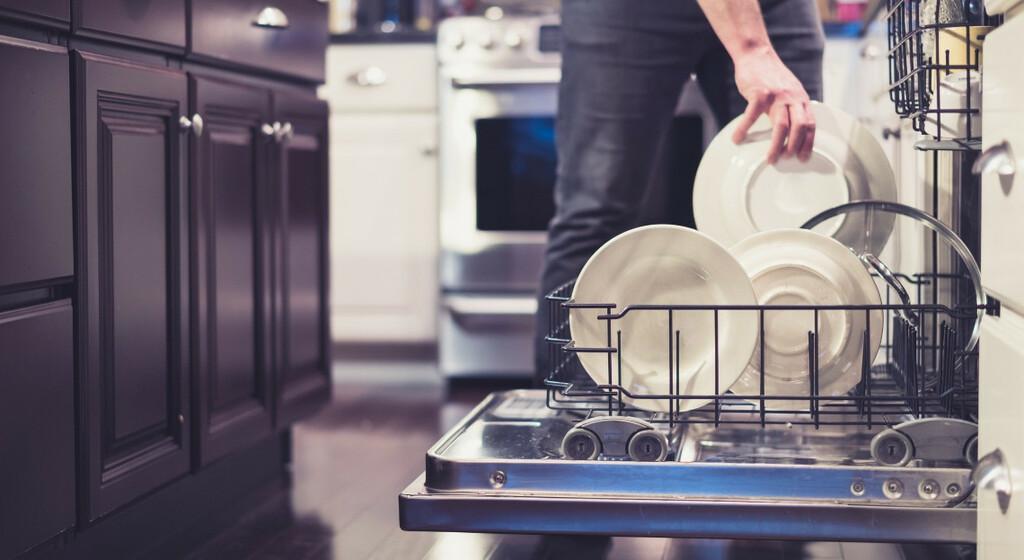What a relief! No odors and dirt left in your dishwasher! We are not going to uncover hot water if we once again highlight the role of white vinegar in cleaning a plethora of household appliances. Anyway, cleaning and shining dishes are different things. If you want to get this double effect, follow us!
Page content
Why make dishes shine in the dishwasher?
Sponsored LinksNotoriously, dishwashers save every housewife time, but without the right cleaning products, the dishes would still be dirty after the final rinse. So how exactly do you get dishes, cups and glasses to shine after use? Maybe it's the same technique that makes your tile or marble kitchen table shine!
Cleanliness and aesthetics go together and we do not care for long. At what price ?
Sponsored Links
People have high expectations for dishwasher tablets: spotless washing, gentle action, limescale prevention and low temperature efficiency. Except that to do all this, a variety of finely tuned interactive components are needed. On the one hand, there are the surfactants which must make the fat soluble in water. On the other hand, it is hoped that the enzymes will break down chain molecules like the starch in flour and potatoes, as well as the proteins in meat and dairy products into their constituents. Finally, bleaches should remove tea and coffee stains.
About half of a conventional all-in-one tab is made up of phosphates. Among other things, phosphates prevent the build-up of unsightly white lime stains by binding the causative calcium and magnesium ions in the dishwater.
However, ecologically, phosphates have a bad reputation. On the one hand, phosphorus is important for plant nutrition, but on the other hand, phosphates can cause algal blooms in aquatic systems. Since plants consume oxygen from water and can bring lakes and rivers to the “tipping point”, phosphates in detergents are banned in France by a decree dated July 1, 2017.
If you've embraced the green idea and want a versatile and inexpensive product, white vinegar is the darling of homemade cleaning products. From washing windows and mopping, to disinfecting the sink and removing soap scum, you can rely on this product of yesteryear again and again. You should always have a bottle in the cupboard under the sink.
When it comes to personal experience effective against hard water stains, white vinegar can be used as a rinse aid in the dishwasher. Avoid putting any in the compartment for this purpose, as the vinegar could compromise the integrity of the seals. To be on the safe side, put the vinegar in a dishwasher-safe bowl on the top rack of the appliance. In this way, the vinegar can reach the dishes most affected by hard water.
For a spotless running regime, you can use white vinegar to clean your dishwasher itself. The process is quick and easy and involves no friction on your part.
After cleaning the drain to remove any dirt in it, run a cycle with a vinegar rinse: place a cup of white vinegar on the top rack of the dishwasher and set it to a water cycle hot. This will remove any stubborn grease or grime that sticks inside and prevent musty odors from forming.
Glass cooking vessels are among the most frequently used items in the home and, therefore, among the most frequently washed in the dishwasher. Unfortunately, sometimes they don't come out perfectly clean. Over time, the high temperatures of repeated washing in the dishwasher can cause dull spots on thin stemware and everyday water glasses. Fortunately, both of these problems can be avoided so that you get the longest life with the best shine from your glass kitchenware. Just add the right conventional product to your cycle to ensure that water droplets that form on surfaces are dispersed before they can evaporate and leave residue or limescale stains.
Unfortunately, if the water you use is soft, it can corrode your glassware over time, and this damage is irreversible. Glass corrosion can also be caused by long dishwasher cycles, exposure to heat, and poor quality glass.
In short, here are some tips to protect your glassware against time and wear:
For more delicate glassware, wash at low temperature or on a delicate or glass wash cycle. Once your dishwasher cycle is complete, open the unit to allow excess steam to escape. Modern machines take care of this with internal fans. Let your glasses cool in the washing machine before removing them.








